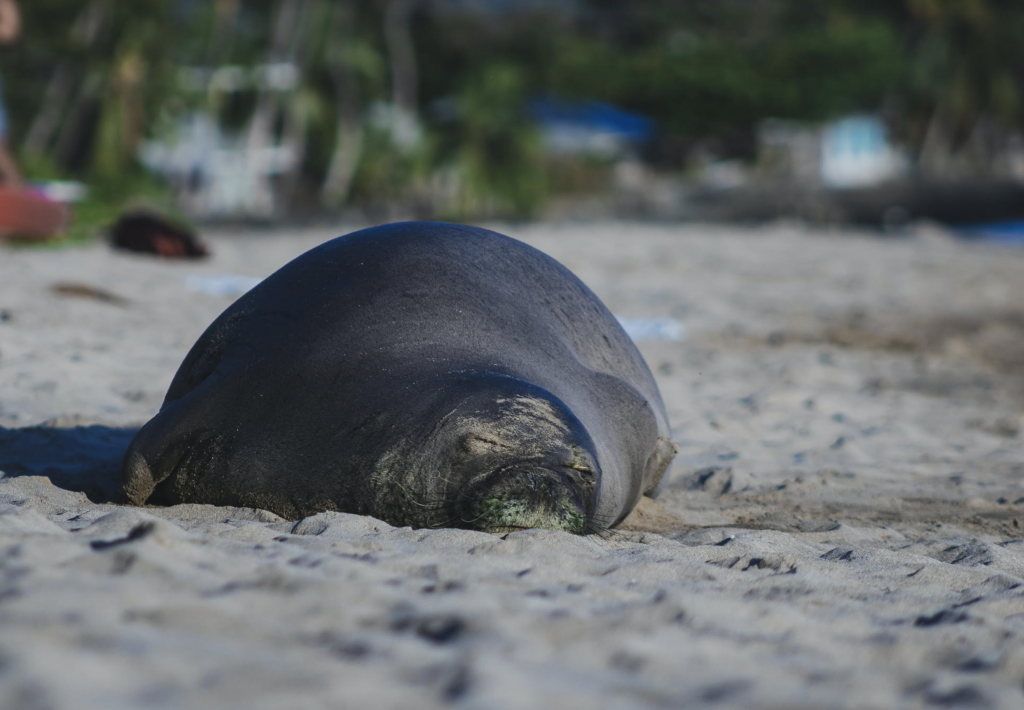Reopening of Select State Parks Prompts Respectful Viewing Reminders
Hawaiian monk seals, green sea turtles and other marine animals that frequent Hawaiʻi’s shores have largely had near-shore waters and beaches to themselves for the past six weeks.
With today’s announcement of the reopening of select DLNR Division of State Parks units across the state, park managers and aquatic biologists are reminding people to be respectful of the places that are shared with Hawai‘i’s marine creatures.
DLNR advises that as people begin to increase use of parks, Hawaiian monk seals and sea turtles, may be less wary of approaching people and more easily spooked from their haul-out locations and back into the water.
With limited volunteer presence during this time, there are fewer visual barriers on beaches than usual, therefore people may be more likely to come across seals. This includes mom and pup pairs as this is the middle of monk seal pupping season. It is important to give moms and nursing pups extra-wide berth during this critical life history stage, both for the protection of the pup and for human safety around protective mother seals.
DLNR Chair Suzanne Case said, “We’re excited people will once again get out, visit, and experience these open spaces and the wildlife that utilize these areas. It is important to remember that these lands are preserved for cultural, aesthetic, and ecological purposes, and as such have specific rules in place in hopes of maintaining these spaces for times like these as well as for future generations.”
The department reports that there have been multiple reports of off-leash dog – monk seal interactions over the past few days. “Remember to keep your dogs on leash when you’re on any Hawai‘i shorelines. Interactions between dogs and monk seals can lead to both animals being injured. Violations can carry fines over $2,000,” according to the DLNR.
If you do spot a monk seal or sea turtle and observe any unusual behavior, either with the animals or people interacting with them, call the NOAA Statewide Marine Animal Hotline (888-256-9840) so a trained wildlife officer can assess the situation.














